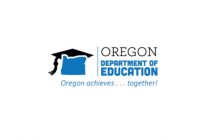Food safety regulations lie at the core of restaurants because food should be taken, prepared, and served by methods that avoid contamination to guarantee the safety of the public’s health. It is no longer a question of compliance for restaurant owners and managers but one of the key ingredients in a successful reputable business venture. This paper discusses the fundamental issues of food safety regulations and provides practical advice on how to comply.
Know the Regulatory Framework
Food safety regulations are ultimately molded by a melding of federal, state, and local laws. In the United States, the FDA provides a framework found in the Food Code that becomes a model for state and local health departments. Restaurant operators must become aware of the regulations, which vary based upon jurisdictions. Knowing what exactly your jurisdiction requires can help in compliance, avoiding fines, and shutdowns.
Set up proper food-handling procedures.
Food safety depends on proper food handling. This includes maintaining correct temperatures for storage, preparing foods in a clean environment, and avoiding cross-contamination. According to the FDA Food Code, cold foods must be kept at or below 41°F (5°C) and hot foods must be kept above 135°F (57°C). Check the temperature regularly and document the measurement using calibrated thermometers.
Cross-contamination is another critical area in contamination prevention. Keep raw meats and ready-to-eat foods separate, with different cutting boards and utensils. Clean and sanitize all surfaces and equipment in the kitchen regularly to rid them of possible contamination.
Train Staff on Food Safety Practices
This enhances food safety standards through staff training. All staff should undergo necessary training regarding food handling and hygiene practices, including personal hygiene. A good training program will tend to inform all the ways of preventing foodborne illness. The staff can update themselves from time to time through refresher courses on the best methods and new legislations.
Hygiene and Sanitation Plan
A well-documented hygiene and sanitation program can really help in the enforcement of compliance with food safety standards within your establishment. It needs to detail how they clean and sanitize each area of the restaurant, from kitchen surfaces and equipment to utensils. Apply a cleaning schedule with daily, weekly, and monthly tasks and ensure that workers follow these schedules. Apply food-grade cleaning agents and more often than not, sanitize high-touch areas to avoid any contamination.
Food Allergen Management
Food allergen management is also a part of food safety. All employees should be trained in handling allergens correctly and how to communicate clearly with customers about the risks associated with possible allergens. Store foods that contain allergenic ingredients differently from other foods. While preparing dishes that contain allergens, ensure the use of exclusive utensils and equipment. Properly label all menu items so that customers can be aware of the presence of any potential allergens and be ready for special requests or dietary restrictions. A tablet POS system can remind staff of critical food safety procedures, therefore, ensuring that compliance with hygiene practices is upheld. This integration of technology has increased overall operational efficiency while helping in the better maintenance of adherence to food safety regulations.
Regular Inspections and Audits
One of the basic needs for food safety is periodic self-inspection and auditing. Schedule regular inspections of the food handling and cleaning practices at your restaurant to catch potential problems before they grow into significant issues. You may want to use checklists modeled on the FDA Food Code or state local health department requirements as a means of ensuring you’ve covered all the essential areas. Subsequent routine audits will not only keep you ahead of regulatory changes but will also significantly contribute toward the creation of a culture of continuous improvement in food safety.
Preparing for a Visit from the Health Department
Health department visits are just part of operating a restaurant. Be prepared, and keep all your documents at your fingertips, such as your food safety plans, temperature logs, and staff training records. If noted, violations need to be addressed right away, and proper adjustments need to be made so you don’t get dinged twice for the same problem. Treat the inspectors with respect and use their feedback as a way to improve your food safety.
Keeping Up with Regulatory Changes
Food safety regulations are subject to change with time, so it’s very important to stay updated on any changes that could affect your restaurant. Subscribe to local health departments, industry associations, or regulatory bodies for updates on new requirements or best practices. You may also learn a lot through participating in industry forums or attending seminars on food safety, thereby helping your establishment remain compliant.
Conclusion
The understanding and application of food safety regulations are very critical to the protection of your customers and your business. Ensuring proper food handling procedures through the training of staff, following good hygiene practices, controlling allergenic ingredients, and preparing for an inspection can help in ensuring compliance to avert foodborne illness and its negative consequences.




